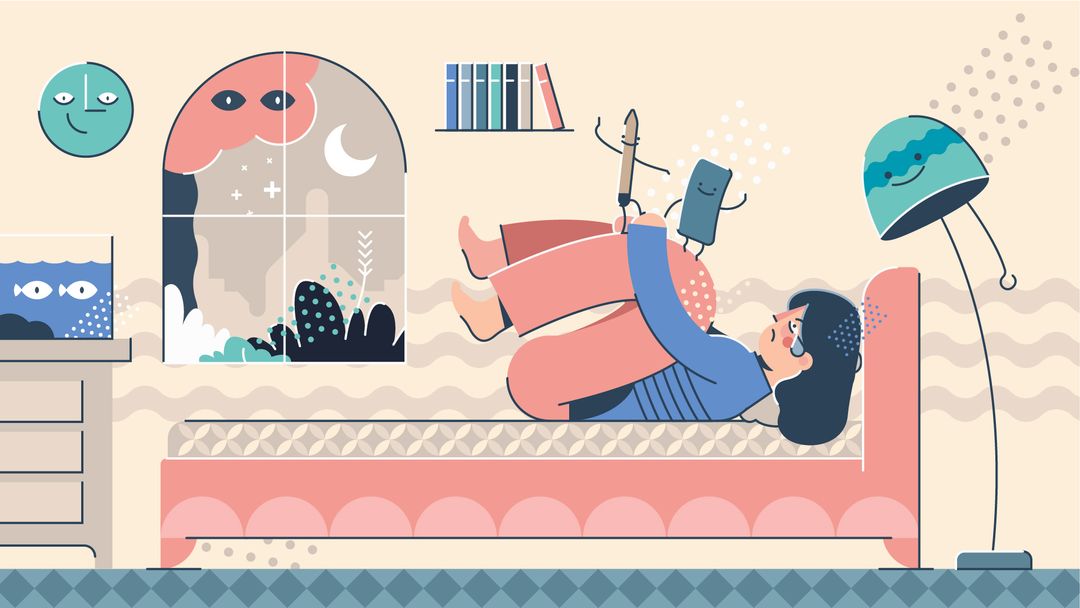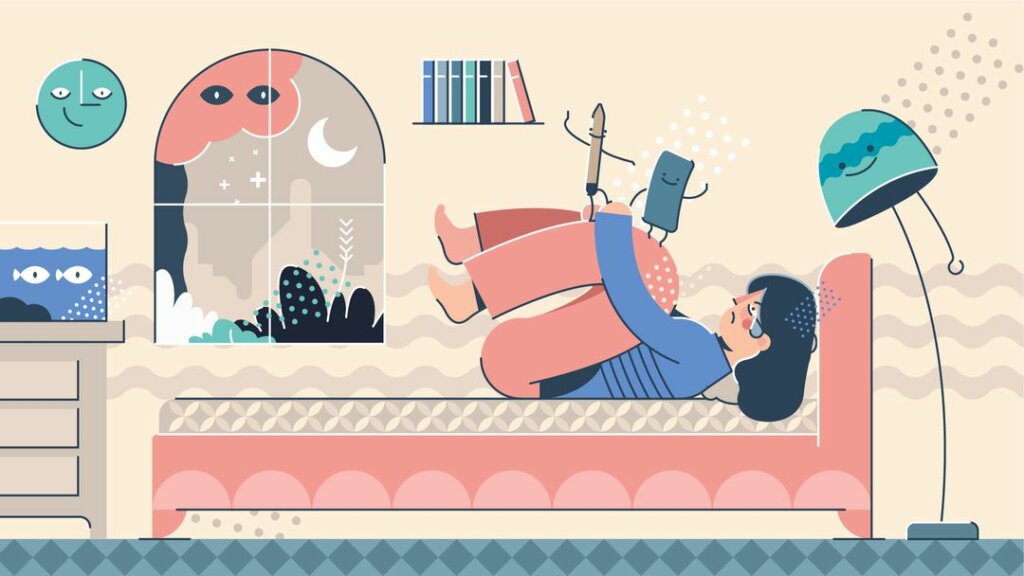Do you ever look back on your childhood and regret all the naps you didn’t take? Do you dream about days and nights that you can spend at home in bed, surrounded by soft pillows and a cozy blanket, and sleeping for as long as you want? While most of us want nothing more than to get deep, undisturbed sleep, there are some people who are severely anxious and afraid of it.
Somniphobia, also known as hypnophobia, sleep anxiety, or sleep phobia, is the abnormal fear of sleep and falling asleep. Not to be confused with insomnia, somniphobia is not the inability to fall asleep. It’s a very rare sleep disorder that stops one from getting enough sleep, precisely because of the fear and anxiety they associate with falling asleep.
Having trouble with your sleep? Our brand new app Dream – Relax & Sleep Better may be just what you need to start developing better bedtime habits and kicking your sleep troubles to the curb. Dream is designed to help you sleep better with meditations, stories, music and sounds to foster mindfulness, beat insomnia and reduce stress. Download the DOYOU Dream app to invite calmness and a better night’s sleep into your life.
Quick Facts – Somniphobia or Sleep Phobia
Frequency: Rare, official statistics unknown
Risk Factors: Sleep apnea and other sleeping disorders, being a child, stress, mental health issues, pre-existing psychiatric conditions
Nature: Mental
Treatment: Psychotherapy, relaxation techniques, sleep hygiene improvement, medication for anxiety
Symptoms – Somniphobia or Sleep Phobia
According to research, symptoms of sleep anxiety are more evident in children, when they start to cry and refuse to be left alone in the bedroom, and not wanting to sleep. They may also verbalize fears of having another nightmare as the reason for not wanting to go to bed. The following are also some of the symptoms exhibited by those with somniphobia.
- Feelings of dread and increasing anxiety during bedtime
- Irrational thoughts of dying if they fall asleep
- Chronic fatigue due to sleep deprivation
- In children, crying, clinginess, and refusing to go to bed
- Increased heart rate and sweating around bedtime or when thinking about sleep
Causes – Somniphobia or Sleep Phobia
Like most other sleep disorders and conditions, studies show that sleep phobia can be caused by a variety of factors ranging from psychological to environmental. With children, the most common cause of fear of falling asleep is previous experience of nightmares. Below are some of the commonly cited causes of somniphobia.
- Sleep-related disorders – Those with sleep apnea, sleep paralysis, and other sleeping disorders tend to have a fear of falling asleep due to their unpleasant experiences.
- Traumatic events – Serious trauma-inducing experiences like violence or death in the family, or any event that has been associated with closing the eyes and/or falling asleep can result in the development of somniphobia. In some cases, accidents or injuries that involve losing consciousness can trigger hypnophobia.
- Post-traumatic stress disorder (PTSD), anxiety – Research shows that these conditions can lead to sleep deprivation, which can also be another cause of sleep phobia.
- Fear of dying – Studies show that somniphobia has also been linked to fear of dying, wherein patients fear never waking up if they fall asleep.
Treatment – Somniphobia or Sleep Phobia
There is no official pharmacological treatment for sleep anxiety or sleep phobia. Treatment options vary as well depending on the severity of phobia or anxiety that the patient experiences. That said, here are a few treatment methods that are being used to help those with somniphobia cope with their disorder.
- Relaxation techniques – Practicing yoga and meditation can help somniphobia patients relax and in turn manage their anxiety. For kids, soothing activities like reading bedtime stories with a parent or caregiver is best for creating an atmosphere of calm.
- Psychotherapy – Sessions with a licensed professional can help somniphobia patients address any underlying conditions that may be causing the phobia, especially anxiety disorders.
- Sleep hygiene improvement – This means avoiding anything that can trigger stress at bedtime (Work issues, watching distressing movies, etc.).
- Medication – There’s no specific medical treatment for sleep phobia. However, anxiety medication with sedative effects may be used to help calm someone down during bedtime.
How You Will Overcome Somniphobia or Sleep Phobia
If your child is exhibiting intense fear of falling asleep, this is most often due to past unpleasant experiences of having nightmares. Help reassure your child by cuddling and comforting them, and by leaving a light on in the bedroom. Remember that in most cases, children naturally outgrow sleep anxiety or sleep phobia.
If your loved one has anxiety falling asleep because they feel unsafe, having someone sleep beside them could greatly help ease their worries. With adults, it’s important to find out if there’s an underlying disorder aggravating their sleep anxiety, through the help of psychotherapy. This way, you’re not merely treating the symptoms, but directly addressing the root of the condition.
With a stable bedtime environment of restfulness, safety, and comfort, pretty soon somniphobia patients can finally choose to snooze.
Did you know?
This article is part of our Complete Guide to Sleep Disorders – A resource that will help you get your quality sleep back. Click here to learn more about sleep disorders, their causes, symptoms and how to overcome them.



